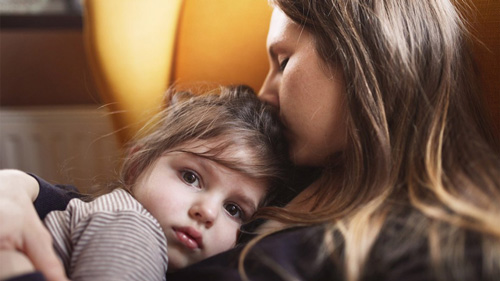Researchers say children of mothers who experience depression are more likely to develop depression as they get older. The results from their study indicate that more programs are needed to treat mothers for prenatal and postnatal depression.
Experts say a healthy family lifestyle can lower the risk of depression for children.
Children of mothers who experienced perinatal depression have a 70 percent higher risk of developing depression in adolescence and adulthood.
That’s the conclusion from a new studyTrusted Source published in JAMA Network Open.
In the study, researchers in the United Kingdom and North America examined data collected from nearly 16,000 mother-child dyads. The children were ages 12 and older.
Female adolescents in the study were found to have a 6 percent higher risk of depression compared to males whose mothers experienced perinatal depression.
The study suggests that additional research into the mechanisms of depression risk transmission and assessments of postinterventional risk reduction could pave the way for new strategies that reduce risks of depressive disorders during pregnancy. Perinatal depression explained
“Perinatal depression simply isn’t talked enough about and there is still a lot of stigma attached to it,” said Dr. Roseann Capanna-Hodge, a psychologist and pediatric mental health expert with offices in Connecticut and New York.
Perinatal depression refers to a depressive episode during pregnancy (antenatal depression) or within 12 months after pregnancy (postnatal depression).
This mood disorder ranges from mild to severe and is treatable, according to the National Institute of Mental Health. “We paint the picture that having a newborn is sunshine and roses, but 60 to 80 percentTrusted Source of new mothers will have the ‘baby blues’ and 10 to 20 percent will have clinical postpartum depression,” Capanna-Hodge.
“For a new mom, they feel guilty about being sad after having this baby that they so desperately wanted and some moms may not even recognize their depression,” she added.What experts have to say
None of the experts Healthline spoke with were surprised by the study’s findings.“I guess 70 percent is rather high, but that it is significant doesn’t surprise me,” said Dr. Alexandra Stockwell, a relationship and intimacy expert and author of “Uncompromising Intimacy.”
She explained how intersecting factors influence this finding.
“Our culture is sorely lacking in the appreciation of the emotional, physical, and spiritual passage into motherhood,”.










